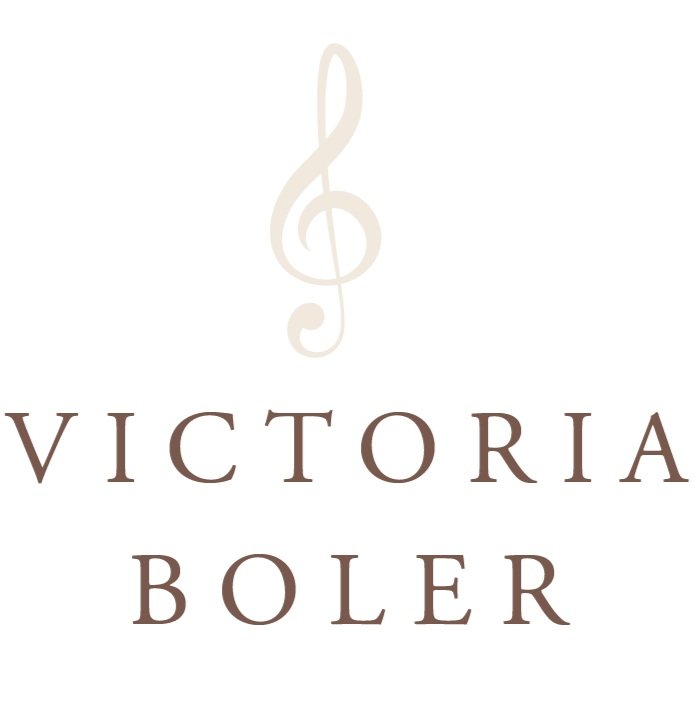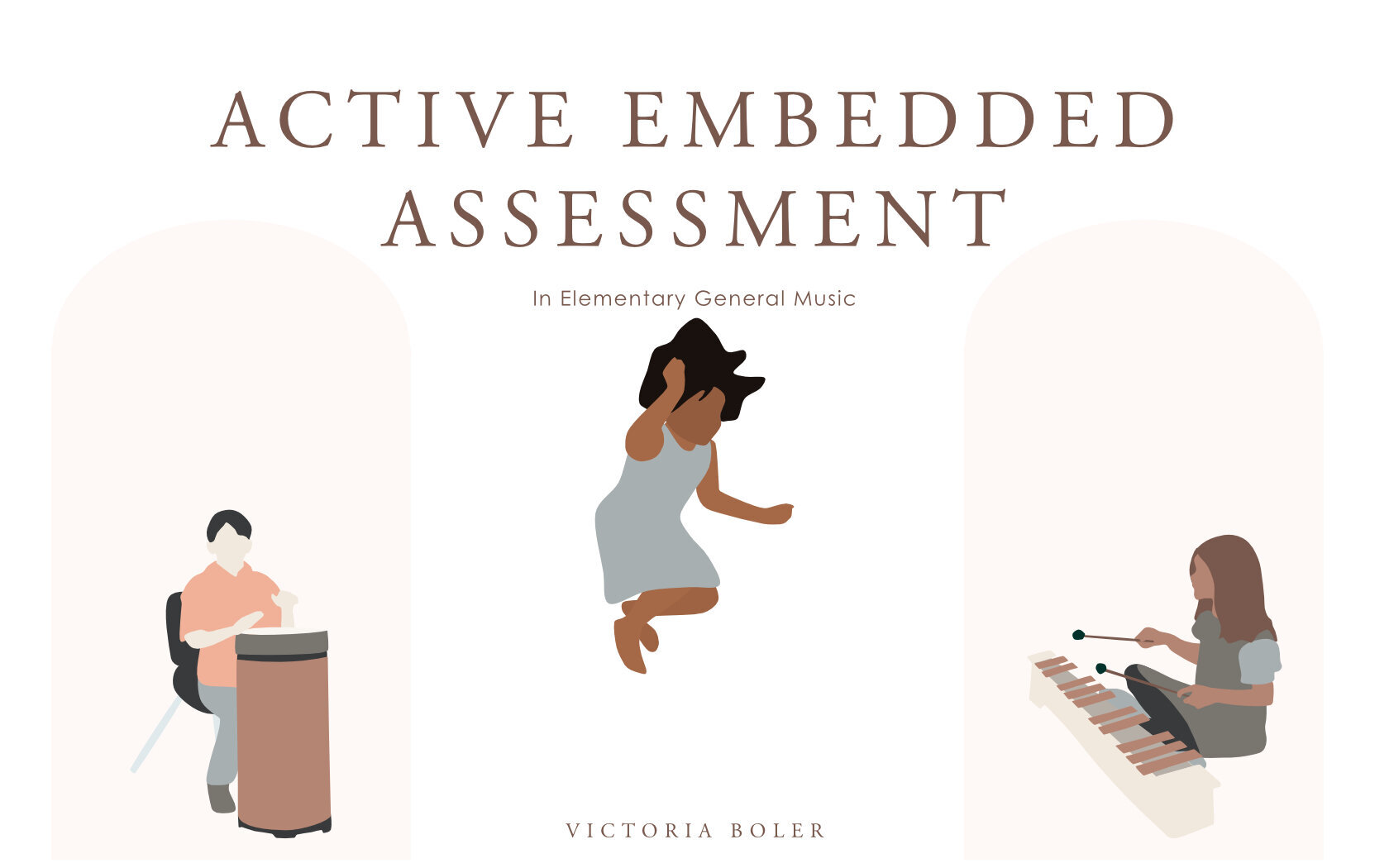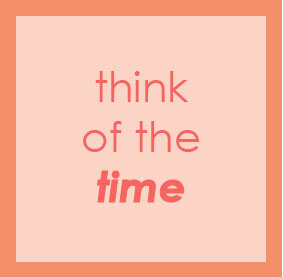Assessment in the Music Room - Part 1
Trying to figure out what kids know and don't know is one of the main tasks of educators. It tells us when to move on to the next lesson and when to stay put. It can give us valuable insight into which students are struggling and which students are excelling. It's the core of so much that we do, and yet many of us feel overwhelmed by words like data and assessment.
Its not surprising. As music teachers we see somewhere around 400 to 600 students a week. Sometimes more. The sheer volume of assessments to give is enough to make my eyes grow wide as I run for the nearest exit.
In addition to the numbers, there is also the question of what medium to choose. Music is not a paper-and-pencil subject. At least not all the time. Music means singing, playing instruments, dancing, improvising, and listening.
So how can we assess our students' learning in a way that's manageable for us, and fair to them?
Assessment Guidelines:
These are general thoughts that are good to keep in mind as you structure your assessments. They're things I've learned through observation, being a music student once myself, and through good old-fashioned trial and error.
Knowledge is not (necessarily) skill
Imagine giving your 4th graders a multiple choice test in which one of the questions reads:
"Which of the following are sixteenth notes?"
This kind of question can give you some valuable feedback on the student's knowledge of sixteenth notes. It measures how accurately a student can recognize a specific shape, and then give that shape the correct name. Good stuff to know.
It does not, however, necessarily mean the child could dictate a rhythmic phrase containing sixteenth notes. It doesn't necessarily mean the child could aurally identify sixteenth notes in a new song.
Assessing knowledge is a good thing to do. But it's just knowledge. We can't confuse it with skill.
Ready to create assessments that are fair to students and manageable for you?
The Medium Matters
I once gave a very short multiple choice activity to a group of kindergartners over opposites in music (loud/quiet; high/low; fast/slow. . .).
But I didn't realize how much help those poor youngsters needed following the outline of this paper and pencil assessment. Numbers to follow, letters to circle that correspond with musical terms and choices they needed to make. . . Those poor kids. They stared up at me with clueless faces as I tried (in vain) to coach them through the assessment.
What I took up was a mismatch of papers with zero questions answered, papers with literally everything circled, and papers with some right answers some wrong.
This was not data I could record and it didn't help me understand what the students could do.
The results didn't necessarily mean that these students didn't know the material. It just meant that the medium I asked them to use didn't allow them to shine in the way they could have.
We have to give students assessments that let them shine, and point to the things they know and can do - not the things they don't know and can't do.
This means thinking through our modes of assessment very carefully.
Modes of Assessment:
If you're asking a student to sing a solo for a pitch matching assessment, will that student shine when asked to sing in front of his entire class? Or be too shy to sing on pitch?
What other methods can we use in addition to solo singing to get a clearer understanding of our students' abilities?
Keep Grading Time in Mind.
Let's say you want to give out a very short assessment to 3rd grade in the form of an exit ticket. It seems easy to assess since it's only one response. Plus it takes so little instructional time. But keep in mind that by the time you're done taking up the data from your whole 3rd grade you suddenly have around 100 exit tickets to grade. The short assignment for them means a lot of grading time for you.
Or, let's say you want to test a skill such as improvising eighth note patterns on barred Orff instruments. I once saw a suggestion on a music educator's website that suggested videoing your classes so that you could go back after class, replay the video, watch each student's response, and give each student a grade.
Let's be honest.
Both of these scenarios take so. much. time.
I don't mean you should avoid doing activities that you have to grade. It just means that you need to be prepared for the amount of outside class time that goes in to collecting and inputing that data. The goal is to get evidence that your students are learning, not for you to get burnt out on paper grades.
I've been guilty of biting off more than I can chew in this area and it doesn't help me become a better teacher. It makes me tired after grading assessments all weekend.
It's important to take down information about students' abilities. But it needs to be done in a manageable way that supports student learning in the long term by not draining you of your love for teaching.
Never Ever Ever Embarrass a Student in Front of his Peers. . . Ever
In early grades like preschool and kindergarten, most students are thrilled at the opportunity to sing and play by themselves. They love getting the attention of their peers and teacher as they perform a solo.
However, something changes as students get older. They become more aware of who is succeeding in music, and who needs more tries to be successful.
And some tricky beliefs about music now enter the music room with your 3rd grade class:
"I'm not good at music"
"Boys don't sing like that"
"I play sports - I don't do music"
"Everyone will know I can't do it if I play by myself"
As students become more self-aware, they also can become self-limiting.
The social influence of peers, families, and media play a part in how our students engage with music as they get older.
This should absolutely change the way we assess our students.
One of the worst things we can do as music teachers is to give a student an embarrassing experience in our music rooms. Music assessment is so different from any other subject because it involves frequent solo performances. That can be terrifying for students who care what their classmates think of them.
Let's be aware of how social influences play a part in our classrooms and never set a student up for failure in front of his peers as we assess abilities.
What We Can Do Instead
Work to create an environment of safety in your classroom well before you take any grades. If you can, start the process young while students are still excited about performing alone.
Set a firm class rule that there is never any giggling or name-calling after someone sings or plays by themselves. And then reinforce it. If there's a group of students who laugh at their peers, talk to them outside of class. If there's a student who seems terrified to try something new in music (especially for a grade!) talk to him after class as well.
Praise effort when students perform alone - for high achieving students and low achieving students alike.
Every assessment is flawed.
The sad truth is that no assessment you give can ever really and definitively tell you what a student knows and doesn't know.
An assessment can only tell you how a student performs on an assessment.
Some students don't perform well under pressure, so they may flop when asked to echo back a rhythm. Others (like my kindergartners) may be totally competent at differentiating opposites like high and low but unable to portray that knowledge on an exam. Students may ace a singing assessment over Sol and Mi but be unable to use it in improvising. Or perhaps they can play a rhythmic element but be unable to recognize it in a classical work.
You get the idea.
Assessments are valuable, but limited.
The Perfect Assessment
I wish I had all the answers to how to create a perfect assessment every time for every learner.
However, every time I take a grade in my classroom it's clear to me that I'm still learning my students, my craft, and how to take effective data.
Each student is so different and shows off what he can do in unique ways. That student will grow and change developmentally year after year, meaning that the way we check for musical ability may have to evolve with him.. We also have different data and assessment expectation with new policies, administrators, and educational trends.
But as teachers we land on our feet. We understand that we're learners first. So we continue to learn about assessment, knowing that it's the best way to learn about our students.
When our assessments are thoughtfully constructed and consistently implemented they give us a direct picture of our effectiveness as educators.







